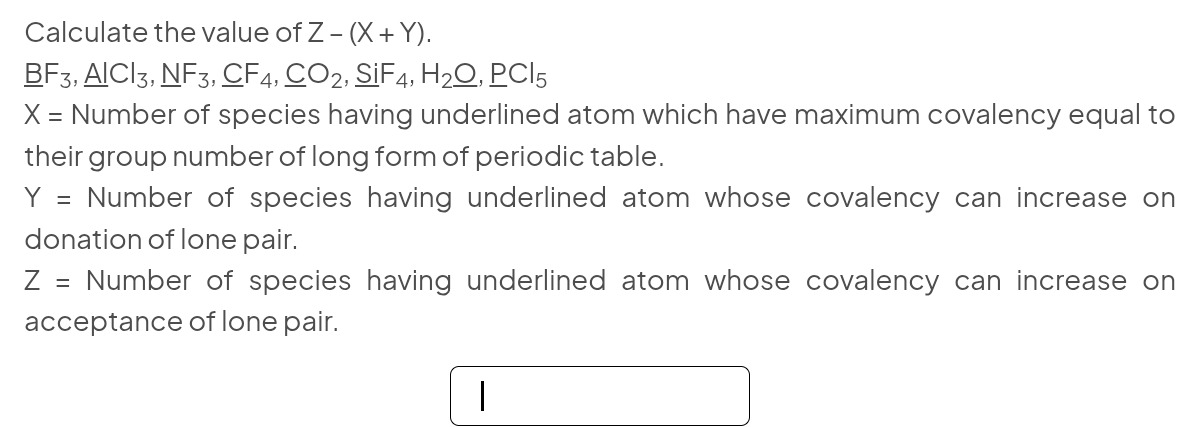Question
Question: Calculate the value of Z – (X + Y). $\underline{BF_3}$, $\underline{AlCl_3}$, $\underline{NF_3}$, $...
Calculate the value of Z – (X + Y).
BF3, AlCl3, NF3, CF4, CO2, SiF4, H2O, PCl5
X = Number of species having underlined atom which have maximum covalency equal to their group number of long form of periodic table.
Y = Number of species having underlined atom whose covalency can increase on donation of lone pair.
Z = Number of species having underlined atom whose covalency can increase on acceptance of lone pair.

Answer
2
Explanation
Solution
X = 0 (No underlined atom has max covalency = group number). Y = 2 (NF3, H2O - underlined atoms have lone pairs to donate and increase covalency). Z = 4 (BF3, AlCl3, SiF4, PCl5 - underlined atoms can accept lone pairs to increase covalency). Z - (X + Y) = 4 - (0 + 2) = 2.
